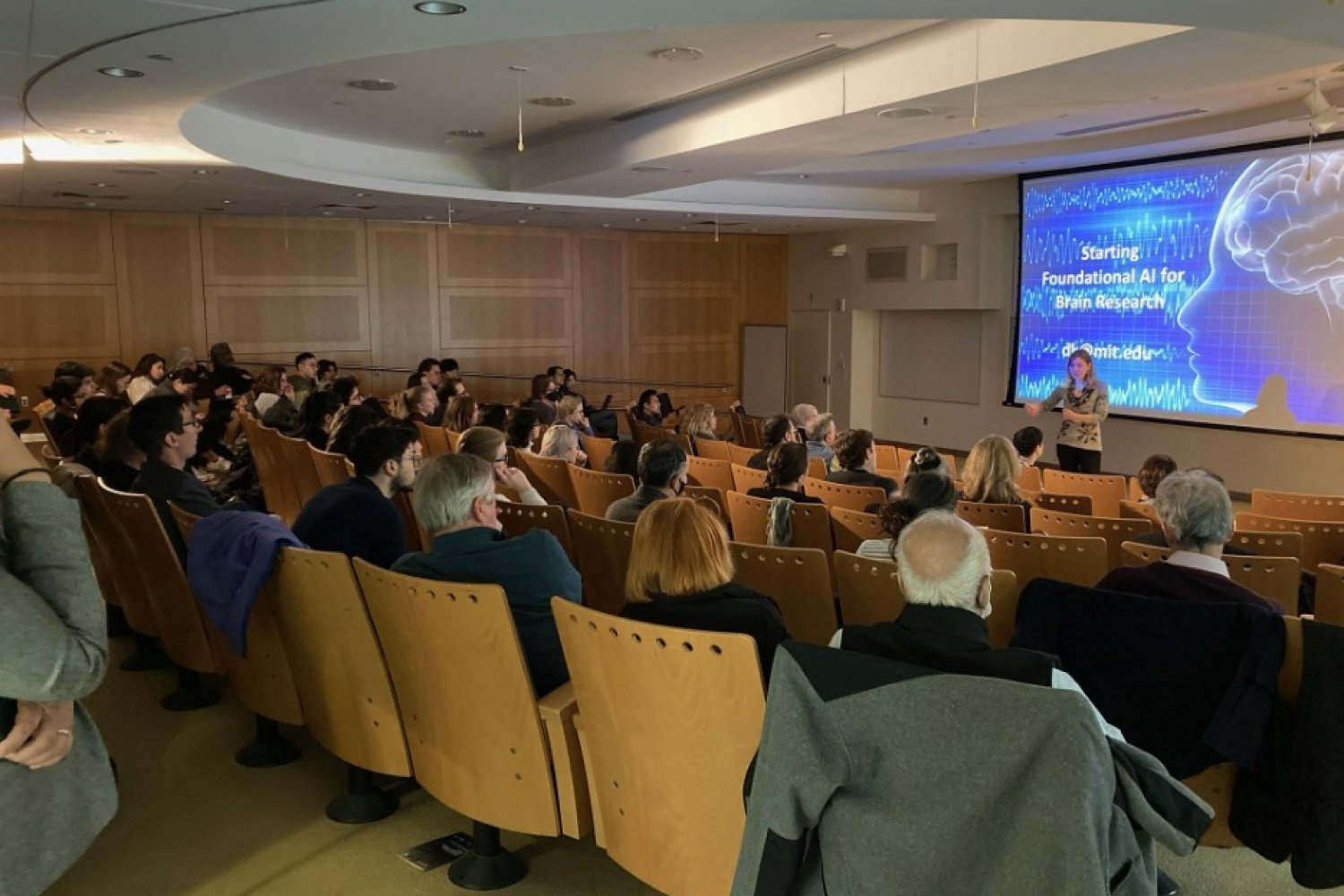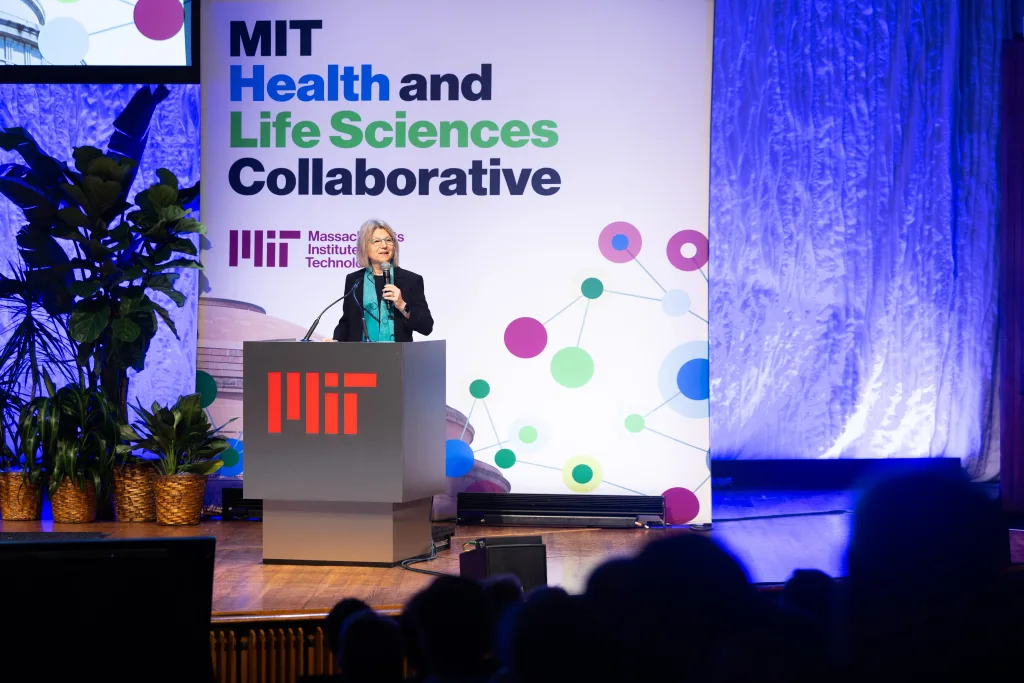Digital technologies, including smartphones and artificial intelligence (AI), are transforming the education landscape. At the 2024 Spring Symposium hosted by the McGovern Institute for Brain Research, titled “Transformational Strategies in Mental Health,” a panel of experts from diverse fields such as psychiatry, psychology, neuroscience, and computer science reached a consensus: these advancements can significantly improve the diagnosis and treatment of mental health disorders and neurological conditions.
The event, organized in collaboration with the McGovern Institute, MIT Open Learning, McLean Hospital, the Poitras Center for Psychiatric Disorders Research at MIT, and the Wellcome Trust, highlighted the alarming increase in mental health issues and presented innovative diagnostic and treatment methodologies.
John Gabrieli, the Grover Hermann Professor of Health Sciences and Technology at MIT, opened the symposium with an appeal for a coordinated effort reminiscent of the Manhattan Project. This landmark initiative, which united top scientists in the 1940s to tackle seemingly insurmountable challenges, serves as an inspirational model for addressing the urgent mental health crisis. During his presentation, Gabrieli pointed to sobering statistics: between 1999 and 2000, there was a staggering 35 percent increase in teen suicide deaths, and from 2007 to 2015, a 100 percent rise in emergency room visits by youths aged 5 to 18 due to suicide attempts or thoughts.
“Today we’re gathered not out of mere curiosity; there’s an undeniable urgency driving our discussions,” Gabrieli stated. He emphasized the necessity for scientific collaboration across various sectors to catalyze meaningful change.
Addressing a Critical Challenge
In 2021, U.S. Surgeon General Vivek Murthy issued a warning about the rising mental health challenges among young people, followed by another advisory in 2023 regarding the impacts of social media. During the symposium, Susan Whitfield-Gabrieli, a research affiliate at the McGovern Institute and professor of psychology at Northeastern University, referenced these advisories to advocate for the urgent need for innovative intervention strategies.
Other speakers echoed these concerns, presenting evidence of escalating mental health issues among young populations. Christian Webb, associate professor at Harvard Medical School, reported that by the end of adolescence, approximately 15-20 percent of teens will have encountered at least one episode of clinical depression, with girls being at the highest risk. He noted that a significant number of these teenagers do not receive necessary treatment.
The reality is that adults grappling with mental health challenges also require novel treatment options. John Krystal, the Robert L. McNeil Jr. Professor of Translational Research and chair of the Psychiatry Department at Yale University School of Medicine, highlighted the limited effectiveness of antidepressants, which often take around two months to yield results. For those with treatment-resistant depression, the odds of relapse are a concerning 75 percent within one year of initiating treatment. Virginie-Anne Chouinard, director of research at McLean OnTrack™, also discussed the serious side effects associated with treatments for other mental health disorders, which frequently deter patient compliance.
Innovative Solutions Through Technology
The symposium showcased emerging technologies, particularly smartphones and AI, as pivotal tools for the interventions discussed. In her talk on AI’s role in mental health diagnosis, Dina Katabi, the Thuan and Nicole Pham Professor of Electrical Engineering and Computer Science at MIT, presented groundbreaking methods for detecting conditions like Parkinson’s and Alzheimer’s. Her early research involves devices capable of analyzing how movements in a space affect the surrounding electromagnetic field, as well as using wireless signals to monitor breathing and sleep stages.
“While it might sound unconventional,” Katabi remarked, “this technology is already in use by real patients, thanks to advancements in neural networks and AI.”
Traditionally, diagnosing Parkinson’s disease occurs only after significant impairment has manifested. However, Katabi’s research team has successfully used a specially designed neural network to analyze nocturnal breathing patterns, achieving over 90 percent accuracy in detecting the disease. Their ongoing studies aim to determine if AI can identify patients without a prior Parkinson’s diagnosis who might develop the condition years later — with promising success rates.
The potential for early detection is exhilarating. Similarly, research led by Jordan Smoller, a psychiatry professor at Harvard Medical School, revealed that an AI-enhanced suicide risk prediction model can predict 45 percent of suicide attempts or deaths with 90 percent specificity, up to three years in advance.
The symposium also featured brief presentations on innovative treatments, such as utilizing ketamine for depression, smartphone applications for mindfulness, and alternative approaches for psychotic disorders. These included treatments that prioritize family engagement over individual therapy for adolescent depression and machine learning solutions to recognize THC intoxication effects.
Promoting Mental Health Research
The frequent and intense occurrences of mental health crises among diverse age groups underline the pressing need for increased funding in mental health research and the open dissemination of findings.
Niall Boyce from the Wellcome Trust introduced the foundation’s funding philosophy, which emphasizes collaborative, coherent, and focused research that directly impacts those most affected. Wellcome representatives Anum Farid and Tayla McCloud highlighted the significance of engaging individuals with lived experiences in projects and advocating for creative “blue sky thinking” that fosters innovation. Furthermore, all research resulting from Wellcome’s funding must be openly accessible to maximize its societal benefits.
Whether through groundbreaking therapeutic methods, pharmaceutical advancements, or AI applications, symposium speakers unified in their belief that transformative mental health strategies necessitate collaboration and innovation.
“To truly understand mental health, we must appreciate the incredible diversity that exists among people,” Gabrieli concluded. “We need to leverage all available tools to forge new treatments capable of helping those for whom current options fall short.”
Photo credit & article inspired by: Massachusetts Institute of Technology



